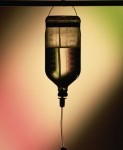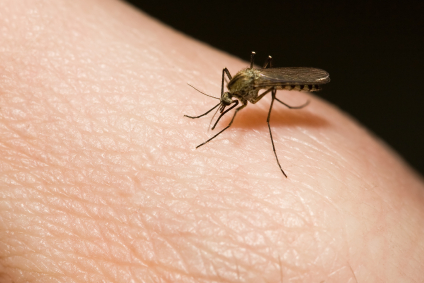Malaria disease is an infectious disease cause by Plasmodium, a parasite that can deadly infect the red blood cells of humans. History shows that malaria had caused millions of death since the beginning of man.
The word “mal aria” was first coined by H.Walpole, an Englishman who described the disease during the 1740. The term was later changed to malaria during the twentieth century. However, in 1880, C. Laveran was the first to identify parasites that are found in blood and it was later found by R. Ross that the carrier of malaria is the mosquitoes.
At present, there are two million mortalities every year due to malaria. The majority of deaths associated with malaria are mostly children under the age of 5 years old. It is quite alarming that four hundred million new cases of malaria disease are reported every year.
In United States alone, one thousand five hundred cases are added this year. However, the majority of cases are mostly travelers or immigrants that come from other countries like South Asia and sub – Saharan Africa.
What are the symptoms of malaria disease?
There is an incubation period before the symptoms of malaria disease appears. Generally, the incubation period may range from seven to thirty days. Some of the symptoms of malaria may include the following:
- High fever
- Moderate or severe shaking chills
- Severe sweating as the body temperature drops
- Cycle of chills, high fever then sweating are recurring every one or two days
- Color of the skin may appear yellow or jaundice due to the damage of red blood cells
- Diarrhea
- Nausea
- Vomiting
- Muscle aches
- Head ache
Malaria disease is a deadly disease and if not treated immediately, it can have serious and fatal complications. Some of complications of malaria are:
- Swelling of the brain or cerebral malaria may occur.
- Breathing problems especially if accumulated fluid enter the lungs
- Malaria can cause kidney or liver failure. Organ failure can be fatal.
- Red blood cells are damaged which may result to anemia
- Malaria can result to severe low blood sugar which can be life threatening.
- Blood pressure may severely drop due to collapse of cardio vascular
Malaria disease is fatal and it needs aggressive treatment immediately. If you feel these initial symptoms and you have recently visited a topical country, it is important that you seek medical help right away. Tell your doctor if you are living or had recently visited tropical parts or where there is known case of malaria.
Patients who recovered from malaria may suffer recurring attacks in the future. The relapse of malaria disease may happen due to parasites that may live dormant in the liver that may reactivate again. Thus, treatment for the relapse should be discussed with your doctor to avoid relapse in the future.
What are the causes of malaria disease?
The main cause of malaria is a parasite that is transmitted by a mosquito. Normally, uninfected mosquito becomes infected by biting a person who has malaria. The mosquito becomes a carrier of malaria and infects other people. After the mosquito bite, the parasites will enter into the liver and may stay there during the incubation period. When the parasites mature, they will attack your red blood cells, thus, leading to malaria symptoms.
If another uninfected mosquito bites you, it will also become infected with the parasites thus repeating the process of spreading the parasite to another person it will bite.
However, aside from mosquitoes, there are other modes of spreading the disease. Malaria can also be transmitted by:
- From pregnant mother to unborn baby
- Unsafe practice of sharing needles
- Blood transfusion
What are the treatments for malaria disease?
Malaria is a serious disease that needs medical help. However, treatments may vary depending on the following factors:
- The type of malaria parasite that had infected the person
- Pregnancy
- Age
- Place or region. Treatment for each person may vary depending on which part of the world the infected person came from.
Some treatments for malaria disease may include:
1. Oral Medication
 Oral medication is first given to persons who exhibit mild form of malaria disease. There are various types of oral medication and they may vary depending on the location of the infected person.
Oral medication is first given to persons who exhibit mild form of malaria disease. There are various types of oral medication and they may vary depending on the location of the infected person.
2. Intravenous medications and fluids
 Intravenous medications and fluids are given to patients who have advanced stage of malaria. Those who have renal failure, severe anemia, and acute breathing problems may require aggressive treatments.
Intravenous medications and fluids are given to patients who have advanced stage of malaria. Those who have renal failure, severe anemia, and acute breathing problems may require aggressive treatments.
Malaria is a deadly disease that had infected millions around the world but spreading of this disease can be prevented. Avoid visiting places where malaria is known but if visiting these places is unavoidable, you have to see your doctor to know the medications that you need to take or bring with you.
